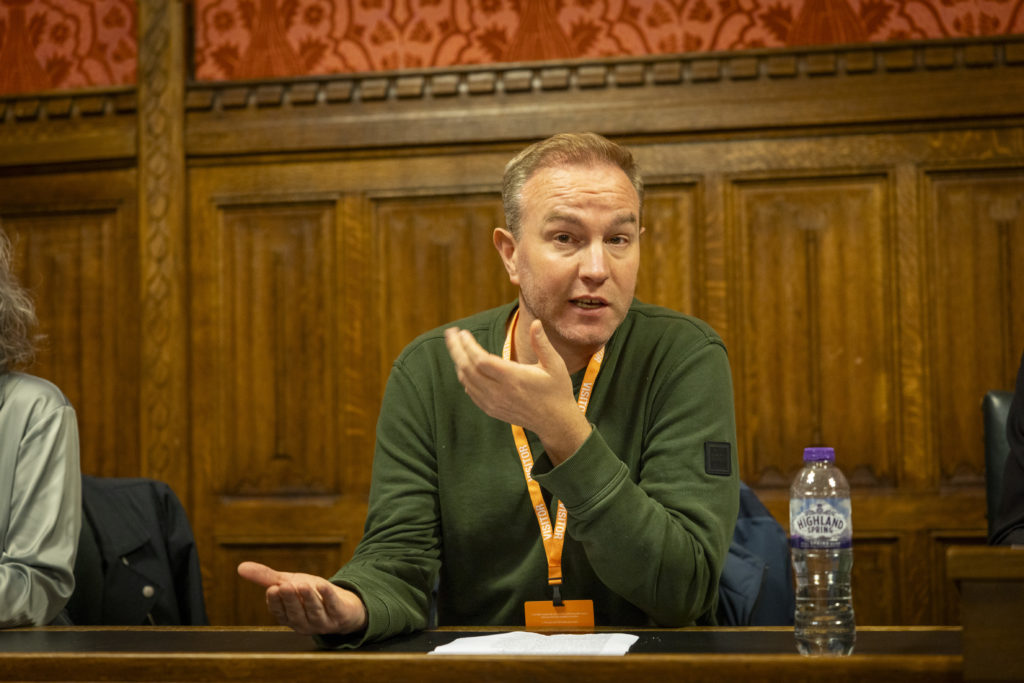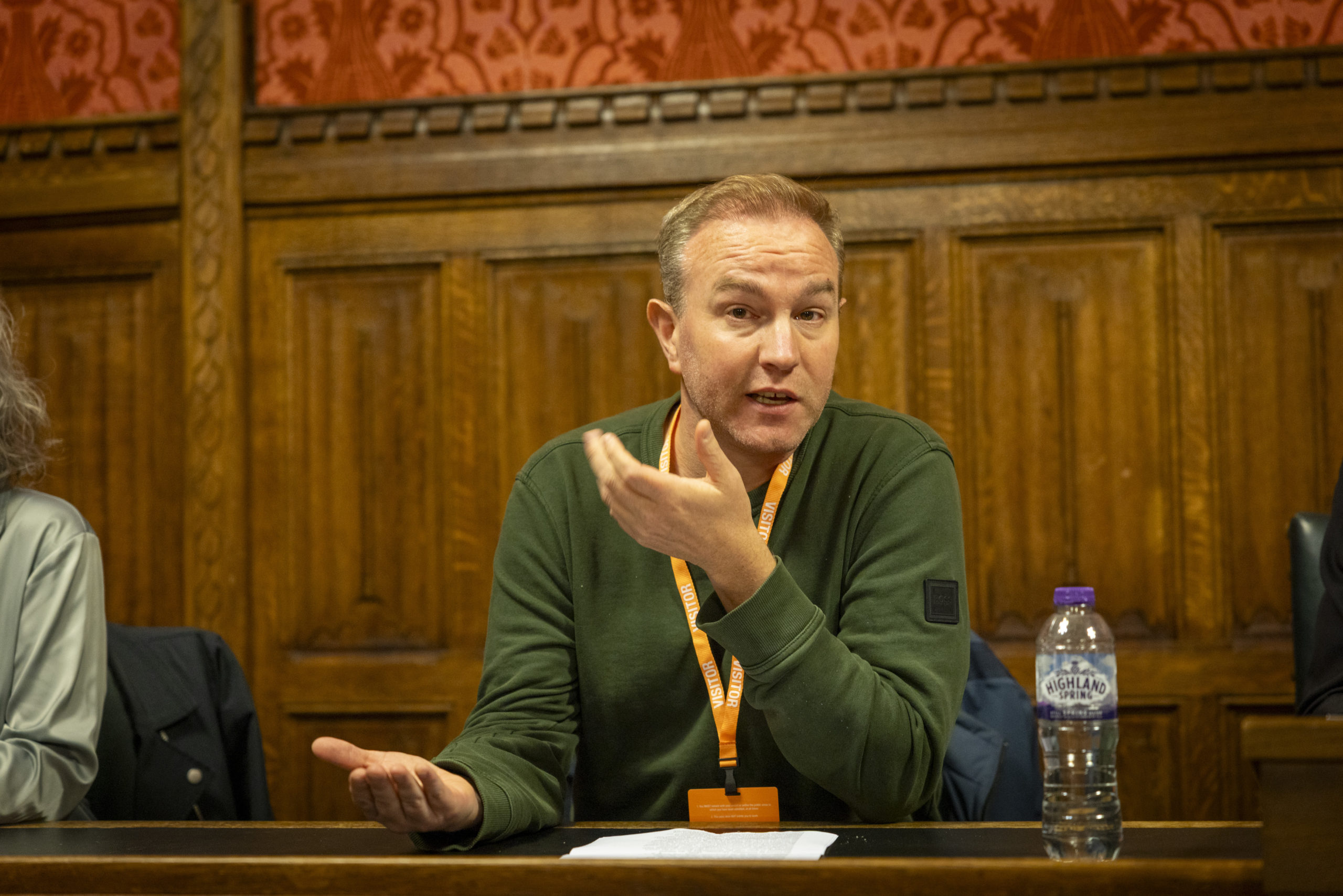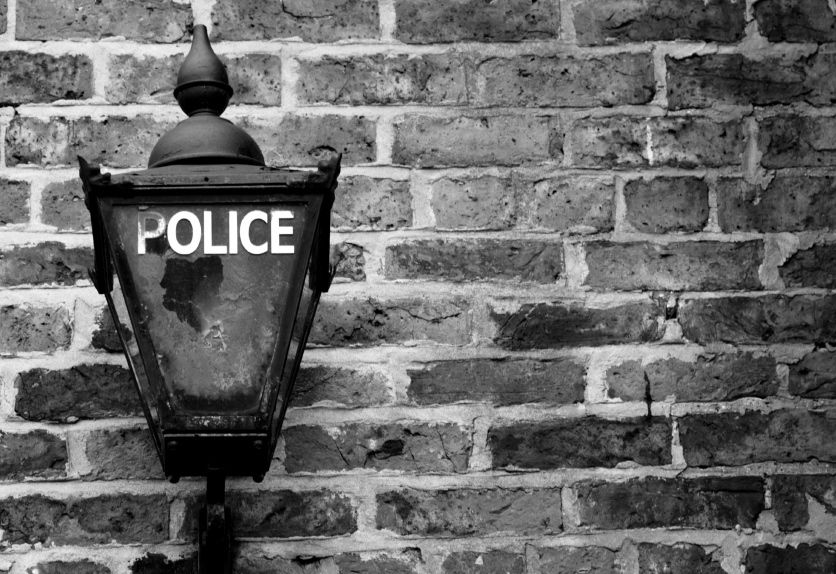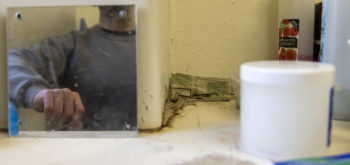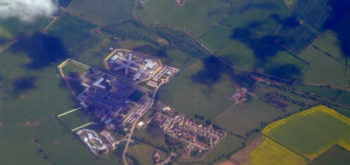The City trader whose conviction for Libor-rigging was overturned earlier this year has hit out at ‘charlatan’ experts ‘unashamedly and avariciously’ exploiting the criminal justice system. Tom Hayes was addressing a specially convened meeting of the All-Party Parliamentary Group on Miscarriages of Justice (APPG), chaired by the former Conservative solicitor-general Lord Edward Garnier KC to explore growing concerns about the unreliability of expert evidence in courts. Photos: Andy Aitchison
In June this year, the Westminster Commission on Forensic Science, set up by the APPG, launched a report Forensic Science in England and Wales: Pulling Out of the Graveyard Spiral calling for ‘urgent action’. ‘If we want to avoid miscarriages of justice, we need to have strong forensic science sector which is overtly independent with public trust and confidence delivered by properly funded scientific,’ said commission co-chair Professor Angela Gallop.
After a three-year inquiry into the sector, the Westminster Commission called for ‘equality of arms to be addressed urgently to retain the integrity of our adversarial system’. ‘The adversarial system cannot work if defence experts become the preserve of the wealthy defendants or only used in high serious trials,’ it argued.
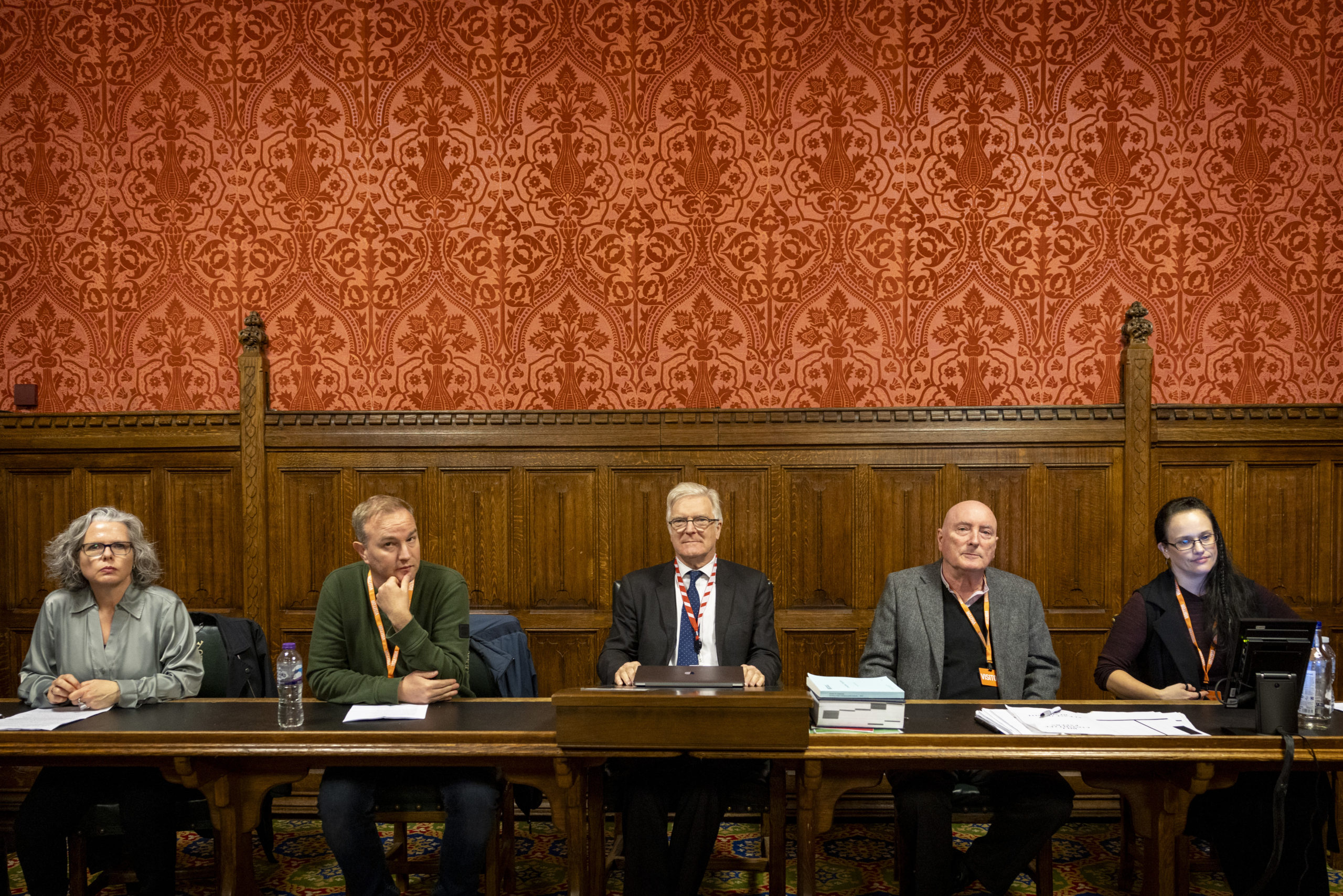 Tom Hayes was the first banker jailed over the LIBOR rate-rigging scandal in 2015. Earlier this year, he had his conviction overturned in the Supreme Court on the basis that the judge in the original hearing had given inaccurate and unfair instructions to the jury that found him guilty on several charges of conspiracy to defraud.
Tom Hayes was the first banker jailed over the LIBOR rate-rigging scandal in 2015. Earlier this year, he had his conviction overturned in the Supreme Court on the basis that the judge in the original hearing had given inaccurate and unfair instructions to the jury that found him guilty on several charges of conspiracy to defraud.
‘I was exonerated,’ Hayes told an audience of MPs, academics, and journalists. ‘I was exonerated not by facts, not by what was said or done at my trial, not by – as far as I am concerned – the criminal act at the core of my trial, but because the legal directions at my trial were so egregious that the Supreme Court said my conviction was unsafe and I wasn’t retried.’
‘Some people might say: “Well that’s lucky”‘, the former trader for UBS and Citigroup reflected; instead, he felt robbed of the opportunity to clear his name. ‘If I’d had a fair trial without the numerous witnesses who perjured themselves, without an unqualified expert and with my own expert witnesses who might have stepped forward, I’m confident I could’ve won that re-trial and put to bed comments to the effect of: “He got off on a technicality”.’ He added that anyone who suggested that he got off on a ‘technicality’ needed ‘to sit in the dock and have 12 people go out and consider your innocence or guilt. Jury directions are not a technicality’.
Hayes highlighted ‘the complete inequality of arms’ between the ‘financial firepower of the Crown’, with access to the pick of available experts, and defendants dependent upon ‘an ever-shrinking legal aid budget’. Reflecting on his own experience, he said that there were two types of potential experts: those ’employed by the financial institutions who wouldn’t let them give evidence’; and what he called ‘professional’ experts whose ‘paymasters were the major banks’.
‘They didn’t want to be giving evidence on my behalf when their bread-and-butter was effectively provided by the institutions with whom I was fighting,’ the former trader said. He said that the expert witness sector had become ‘an industry’ of professional experts. ‘That’s what we should call it: an industry. People are making careers from these fees, good careers,’ he said. In his case, he reported that that the CPS paid one of two prosecution experts £412,000 in fees – whilst his lawyers were unable to instruct a single expert. He blamed that ‘unqualified’ evidence for his wrongful conviction. ‘When you’re talking about such gargantuan sums of money, it’s not surprising how their loyalty often lies with the instructing party – particularly when they’re repeatedly instructed.’
The aura of infallibility
Professor Carole McCartney, a member of the Westminster Commission, said that their investigation ‘found a dramatic shortage of qualified, good experts’ willing to be instructed by defendants.
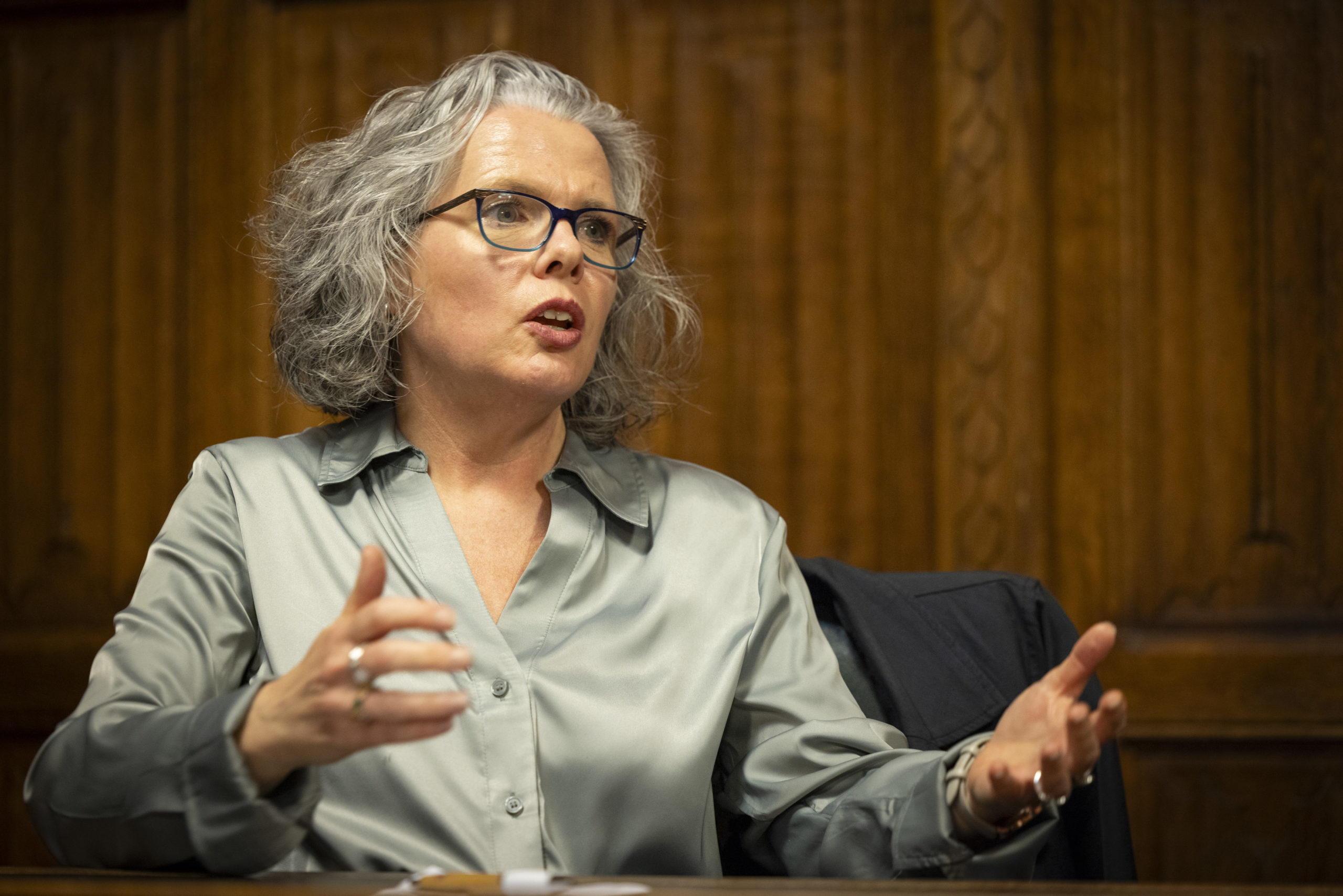 ‘There are too few now available or willing to take instructions to work on criminal cases and, honestly, a lot of the time I couldn’t blame them. Why would you when the fees are shockingly bad and the conditions awful?’ Everything was done ‘at the last minute and in a hurry’, she said. They often had to ‘fight for disclosure’. ‘We met with experts who said they turn up at court only to speak to the other side’s experts and find out they knew things that they didn’t know about,’ she said.
‘There are too few now available or willing to take instructions to work on criminal cases and, honestly, a lot of the time I couldn’t blame them. Why would you when the fees are shockingly bad and the conditions awful?’ Everything was done ‘at the last minute and in a hurry’, she said. They often had to ‘fight for disclosure’. ‘We met with experts who said they turn up at court only to speak to the other side’s experts and find out they knew things that they didn’t know about,’ she said.
Prof McCartney highlighted what she called ‘the ridiculous demands’ imposed by the Legal Aid Agency (LAA) often preventing access by publicly funded defendants to expert witnesses. The Westminster Commission described dealing with the LAA as ‘extremely time-consuming and challenging’ and made more difficult by its insistence on solicitors providing three quotes for potential experts, imposing maximum hourly rates – ‘most often’ the LAA would only approve the lowest quote and stipulate ‘the fee they deem appropriate’. Even then the LAA might only sanction ‘the minimum amount of work’ and, for example, fund only a ‘paper exercise’ rather than inspecting exhibits or commissioning new testing.
Prof McCartney said: ‘The upshot of this is that far too often prosecution expert evidence goes unchallenged, they can be very lightly cross-examined and the defence don’t have the benefit of their own experts. And this adds to that aura of infallibility around the expert then, because, well, they must be unchallengeable.’
The problem was compounded by shortcomings of the criminal appeals system. ‘There’s a mountain to climb far too often trying to convince the CCRC, supposedly a body who should be engaged in this work, to actually undertake new testing and to instruct new experts,’ the academic continued. CCRC applicants often encountered evidence going missing (‘particularly now the police look after it’); police forces increasingly relying on a 2014 Supreme Court ruling (as reported here) to refuse requests for post-conviction disclosure; and access to court transcripts was not possible because they were ‘prohibitively expensive’.
‘Everything is against you,’ she says, ‘and then we find a contradiction here: the expert in the courtroom will almost be believed without question. If a new expert comes along to challenge that evidence, they’re now facing incredible scepticism. “They surely can’t know all the details of the case? They weren’t involved. They weren’t at the trial. They’ve come along very late in the day.”‘
‘Shockingly we see this scepticism at the Court of Appeal,’ she said; adding that it ‘feels increasingly like they’re seeking to protect the original expert evidence that was given’. A position that was taken to ‘a ridiculous degree’ in the Peter Sullivan case.’ Peter Sullivan had his conviction for the murder of Diane Sindall in 1987 overturned after 38 years’ in prison in June following DNA tests. The appeal judges overturned the conviction narrowly on the DNA evidence but in doing so disregarded other grounds of the appeal around forensic evidence as well as the vulnerability of Sullivan which led to his ‘confession’. Prof McCartney observed ‘the Court of Appeal had to get in there’ that the overturning of conviction ‘doesn’t discredit the bitemark evidence used to convict him’.
Letby: Cheshire Police ‘out of their depth’
Speakers expressed concerns about the safety of Lucy Letby‘s conviction including the senior coroners’ officer who first reviewed the deaths of the babies at the Countess of Chester Hospital. Stephanie Davies was given three hours to carry out her review and has subsequently said that she was told it was key to Cheshire police starting its investigation. ‘I do believe it is a miscarriage of justice,’ she told the event. ‘I’m concerned that my review contributed to somebody who I believe is innocent now being in prison.’
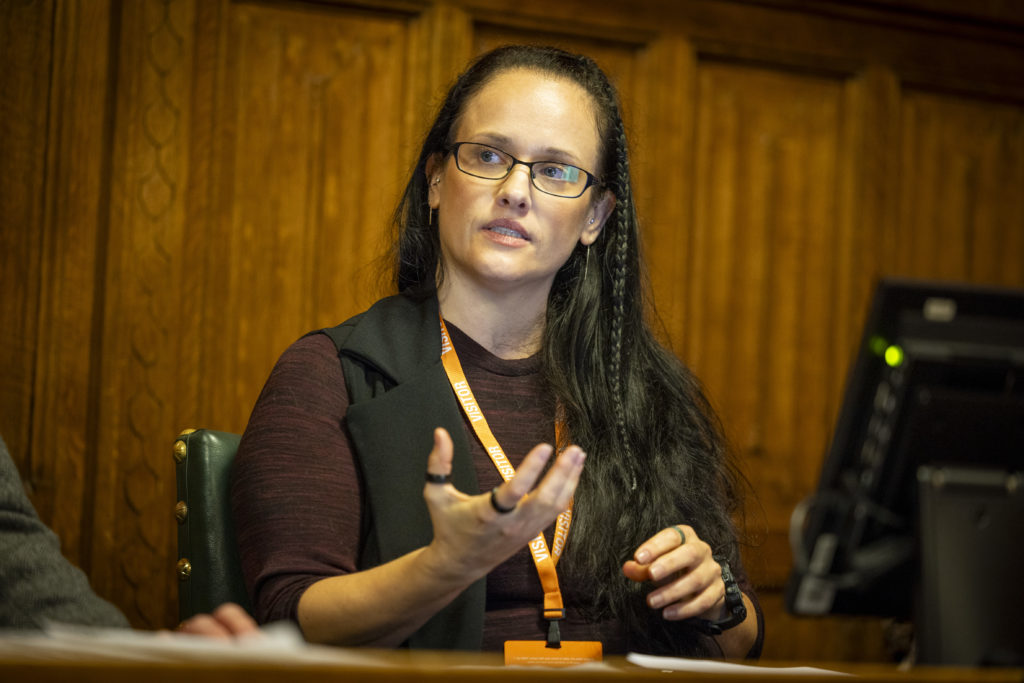
Davies said Cheshire police had been ‘out of their depth’. ‘It’s so crucial to get the right experts and it needs to be fair as well.’ She called for the courts to adopt the more ‘inquisitorial’ approach of the coroners’ courts. ‘The coroner is looking for the truth, not who to blame,’ she said. When it’s too adversarial, you’ve got one side against the other and whichever side performs the best or has the most money, then they win. I think that’s partly what leads to miscarriages of justice.’
John O’Quigley, an honorary professor in the department of statistical science at the University College of London, argued that the presumption of innocence had become undermined in the criminal courts leaving the odds ‘massively stacked’ against the accused. The academic was quick to identify what he saw as the flawed statistical basis of the case against Lucy Letby – as reported here on the Justice Gap.
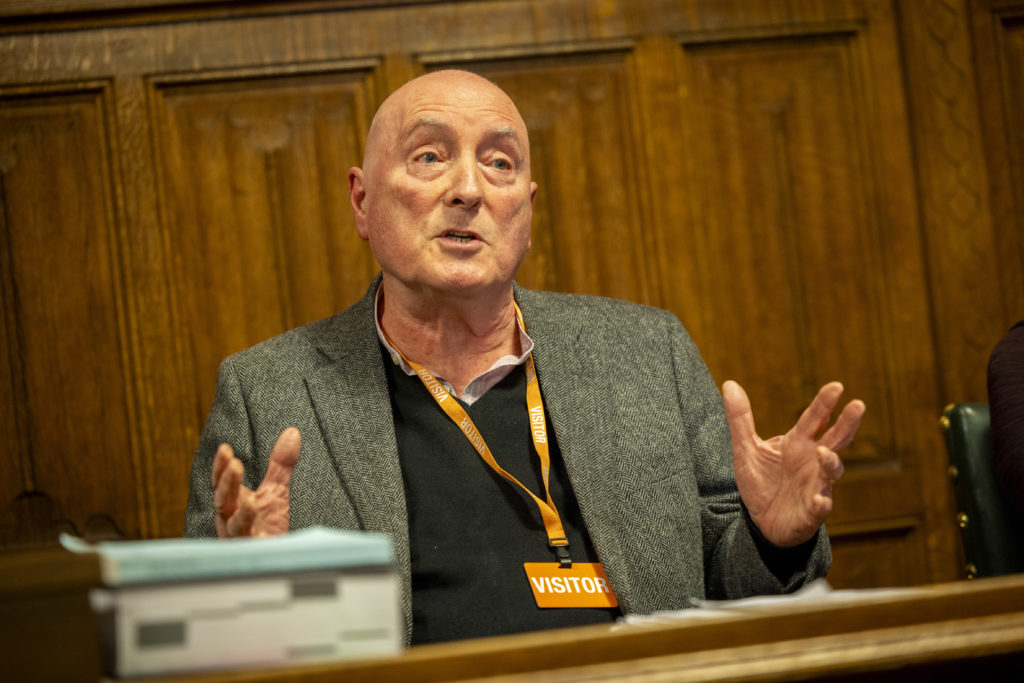 Prof O’Quigley also highlighted the inequality of arms. ‘One of the obvious things is the amount of money the prosecution will spend to secure their conviction,’ he said; adding that he had heard of just one expert witness being paid over a million pounds. The Crown Prosecution Service has said that the prosecution costs in the case of Lucy Letby amounted to £2,849,721.65 (not including ‘internal’ costs, i.e., the CPS’s own lawyers). ‘If one side can spend over a million pounds and the other side, the accused, has no chance of finding that amount, absolutely none. So right from the word ‘go’, (in an adversarial justice system) where we are supposedly stacking weight in favour of innocence, but in truth it’s the very, very opposite. We’re stacking the evidence massively in favour of conviction.’
Prof O’Quigley also highlighted the inequality of arms. ‘One of the obvious things is the amount of money the prosecution will spend to secure their conviction,’ he said; adding that he had heard of just one expert witness being paid over a million pounds. The Crown Prosecution Service has said that the prosecution costs in the case of Lucy Letby amounted to £2,849,721.65 (not including ‘internal’ costs, i.e., the CPS’s own lawyers). ‘If one side can spend over a million pounds and the other side, the accused, has no chance of finding that amount, absolutely none. So right from the word ‘go’, (in an adversarial justice system) where we are supposedly stacking weight in favour of innocence, but in truth it’s the very, very opposite. We’re stacking the evidence massively in favour of conviction.’
There was criticism of the role of the paediatrician Dr Dewi Evans who volunteered his services to Cheshire police and later became the prosecution’s lead medical expert at the trial. His evidence had been seemingly undermined by a panel of 14 leading international neonatologists headed up by the world-renowned expert, Dr Shoo Lee whose 1989 report Evans drew upon to argue that Letby had murdered babies by injecting air into their veins. Dr Lee gave evidence to the Court of Appeal explaining Dewi Evans had fundamentally misunderstood his paper but the judges dismissed it as ‘irrelevant’.
Tom Hayes pointed out that Evans had boosted of ‘a near perfect record of victories’ in cases where he had been instructed. ‘But far from being seen as something that should ring alarm bells, he wears that success rate as a badge of honour. That’s a real problem for me.’
In an email exchange with Private Eye’s medical correspondent, Phil Hammond, Evans wrote: ‘In 35 years (1988-2023), I have never lost a murder, manslaughter or serious abuse case other than one when acting for the defence… losing my one case still rankles.’ Hayes argued that jurors should be made aware of how often an expert has been instructed by both sides open (‘so if an expert is being instructed 30 times by the prosecution, the jury should know that…’); and how much an expert was being paid to give their evidence. He added that such an idea would be ‘considered heresy by the legal word because once a judge determines the expert meets the criteria for the role the integrity of the expert becomes unimpeachable.’
Tom Hayes argued that the history of miscarriages of justice was littered with the cases where the courts were unable to weed out inexpert and biased ‘expert’ evidence. He cited infamous failings in the Sally Clark case by the paediatrician Professor Roy Meadows and the discredited Home Office forensic science Dr Frank Skuse whose evidence led to the wrongful conviction of the Birmingham Six. Hayes argued judges had proved themselves ‘ill equipped to spot the charlatans that repeatedly unashamedly, avariciously exploit the system.’ ‘It’s only much later – when hands are wrung, anodyne tropes rolled out – do we tear the curtain asunder to expose the true nature of it,’ he said.
Support the Justice Gap, buy PROOF
